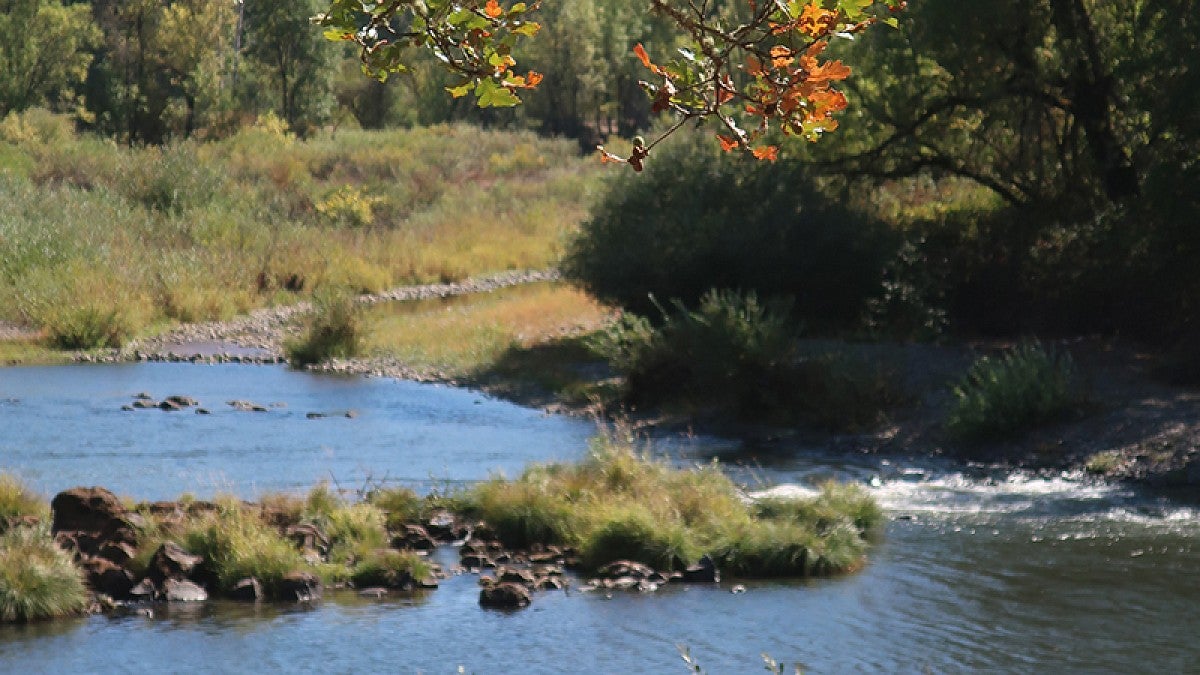An environmental symposium featuring Black and Indigenous activists and scholars will bring together students, faculty, staff and community members to discuss significant efforts being made on local and national levels.
The Nov. 4 “Air, Water, Land: Native/Indigenous, Black, and Afro-Descendent Relationalities and Activism” event is free and open to the public and will feature both in-person and remote events. Registration for the event can be found on the Center for Latino/a and Latin American Studies website.
“This symposium is framed as a way to bring people together to center Indigenous, Black and Afro-descendent voices both locally and hemispherically,” said Kirby Brown, associate professor and director of Native American and Indigenous studies. “We want to prioritize not just how they’re experiencing climate change but also what they’re bringing to these crises in terms of traditional knowledge or contemporary cultural practice.”
Remote events will be held over Zoom. In-person events are subject to UO COVID-19 guidelines, which may change, and are restricted to the UO community and guests. Seating is limited and guests must register. Register for in-person events by emailing cllas@uoregon.edu.
The symposium is supported by an organizing committee of faculty members from departments across campus, including Brown and Lynn Stephen, Knight Chair and professor of anthropology. The committee shaped the overall vision of the symposium in conversation with activists.
Programming will center Black and Indigenous perspectives on climate change, environmental racism, settler colonialism and solutions for achieving environmental justice.
The symposium will feature three remote panels and a keynote conversation and will conclude with an exploration of sustainable food systems in relation to Black food sovereignty. Each panel revolves around issues affecting and inspired by air, water or land, such as catastrophic wildfires; connecting to water through art, film, and relationships to ancestors; and Indigenous resistance to mining megaprojects.
The keynote conversation will feature Irma Alicia Velásquez Nimatuj and Amber Starks. Both Velásquez Nimatuj and Starks are activists, poets and scholars in residence at the UO.
Starks is an Afro-Indigenous activist, an enrolled citizen of the Muscogee (Creek) Nation and an organizer whose work operates in the intersections between Black and Native American identity. She graduated from the UO in 2003 and is in residence with the Common Reading program under a grant from the UO Savage Endowment for International Relations and Peace.
“We want to speak to what we are currently doing in our community to address these issues from our perspective,” Starks said. “We also want to decenter voices that don’t come from our community and reclaim positions of authority and stewardship in these fields.”
Velásquez Nimatuj is a Maya-K'iche' social anthropologist whose activism is rooted in struggles for respect for Indigenous rights and cultures, acknowledgement of Indigenous knowledge systems and practices, and care for territories ravaged by resource extraction. As a visiting professor funded by the anthropology department and the Global Justice Initiative, she is teaching a course on the intersections between Indigenous women, land and social movements in Latin America.
“The objective is for people to broaden their awareness regarding the current conditions of the animal, plant, mineral and human worlds,” said Velásquez Nimatuj. “Hopefully, participants can learn to connect how the political history of this country has contributed to the devastating conditions in which several countries, erroneously called ‘underdeveloped,’ find themselves.”
Stephen, the UO anthropologist, hopes the symposium will rewrite the script in terms of how scholars and activists think about the environment and environmental justice by centering the longstanding contributions of Indigenous, Native, Black and Afro-descendent activists and advocates.
“This work is fundamental to all of us and the future of the planet,” Stephen said.
—By Anna Nguyen, University Communications


